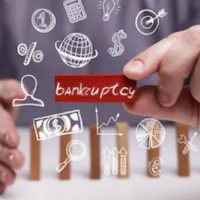Can a Business Owner Benefit from a Chapter 13 Bankruptcy?

A business entity cannot file for Chapter 13 bankruptcy protection. However, this option might be appropriate if you are a sole proprietor and are worried about losing property.
At Nowack & Olson, our Plantation bankruptcy lawyers have helped many small business owners analyze their bankruptcy options. In some cases, a Chapter 7 liquidation is not appropriate, so we will also consider whether you should pursue a Chapter 13. Please contact a South Florida bankruptcy lawyer today to review.
Sole Proprietors
A sole proprietor is someone who runs their business using their name and (most often) their Social Security Number. There is no legal distinction between you as an individual and your business. Business assets are held in your own name, and you are also personally responsible for your business debts. Someone who is a freelance writer, for example, is a sole proprietor.
Not all small businesses are sole proprietors. You might be organized as an S Corp, a limited liability company (LLC), or as a partnership. People who are not sole proprietors should consider a Chapter 11 bankruptcy as an alternative to Chapter 7. This article is addressed only to those who are organized as sole proprietors.
Non-Exempt Business Assets
A Chapter 7 liquidation has a huge drawback for sole proprietors—you could lose assets. For example, you might have a car, investments, and even a vacation property. Unless you can exempt these assets, the trustee can sell them in a Chapter 7. Even if all you want to do is eliminate business debt, you could still lose your personal assets because there is no legal distinction between you and your business as a sole proprietor.
A Chapter 13 offers help here. You do not lose any non-exempt property in a Chapter 13. Instead, you pay your disposable income to your creditors over 3-5 years and keep all your property. You might have bought a food truck or supplies for your business which you could lose in a Chapter 7 liquidation. Filing for Chapter 13 protection might be the better bet.
Of course, there are drawbacks to Chapter 13. The main one is the duration. Three to five years is a long time, and your case can be dismissed if you do not stick to the plan.
Secured Loans
Chapter 13 allows debtors to reduce the amount of principal they owe on certain secured loans. For example, you might owe $14,000 on a car that is now worth only $10,000. With a “cramdown,” you can reduce the amount you owe to the value of the collateral. Because there is no distinction between your personal debts and business debts, sole proprietors can use the cramdown to reduce the amount owed on even non-business assets.
A cramdown is not available for your mortgage, but you might use it for other property, like investment properties. Talk with an attorney about whether this is something you can take advantage of.
We Have Helped Countless Businesses Clear Debt
At our firm, we help more than individual consumers. We can also handle your business bankruptcy. Contact us today, 888-813-4737, to learn more.
Resource:
sba.gov/content/sole-proprietorship
https://www.floridabankruptcynow.com/avoiding-bankruptcy-scams/
